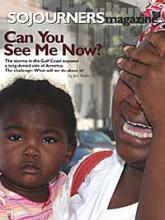We rise or fall together. God can use us as a faith-filled worldwide community to end starvation, bring wholeness, and staff the turning points of history. For those of us from faith traditions emphasizing solo salvation, these can seem like novel ideas. But they are at the theological heart of many of this month’s passages. The readings lead us to consider our corporate identity—both who we are now and who God calls us to become.
Repeatedly, we hear the one who speaks as the voice of many guiding a chapter in the Bible. Psalm 78:1 says, “Give ear, O my people, to my teaching.” In Psalm 123, the psalmist lifts up “my eyes,” but later speaks of “our eyes,” even “our soul” (italics added). Deborah judges Israel, a people, in Judges 4. In Ezekiel 34, the Lord judges between one group of “sheep” and another. In Matthew, Jesus delineates between the “sheep” and the “goats” in the gospel’s declaration of a final judgment.
Repeating who we are as a community of faith is a necessary redundancy if we have been raised, even spiritually and ethically, as rugged individualists. By the third week’s readings, Jesus makes clear the basis on which a people are judged: Whenever you feed the hungry or give water to the thirsty—or ignore the desperate state of the poor, he says, “you did it to me.”
The final week offers the reassurance that God continues to reform and create that people anew for just such a calling, even as a potter forms clay. In a beautiful way, form meets function with the many sculpted as one.
Read the Full Article
